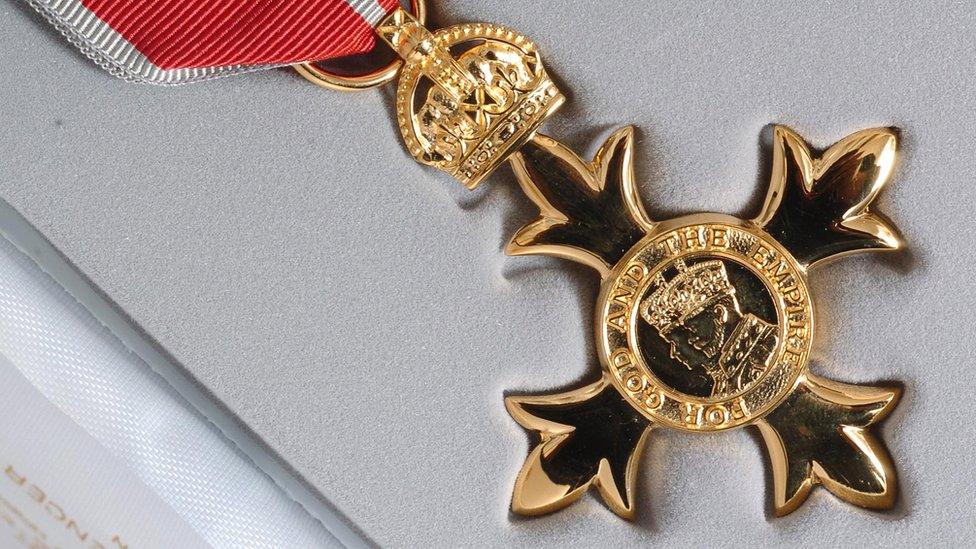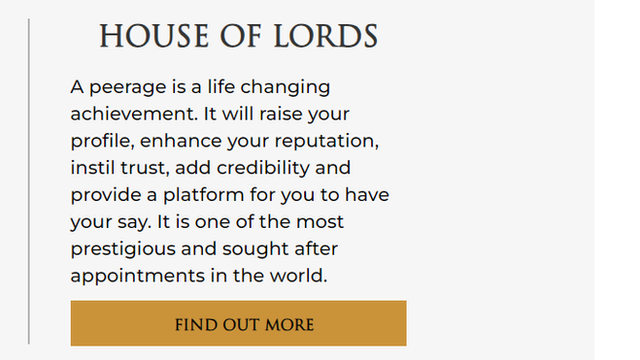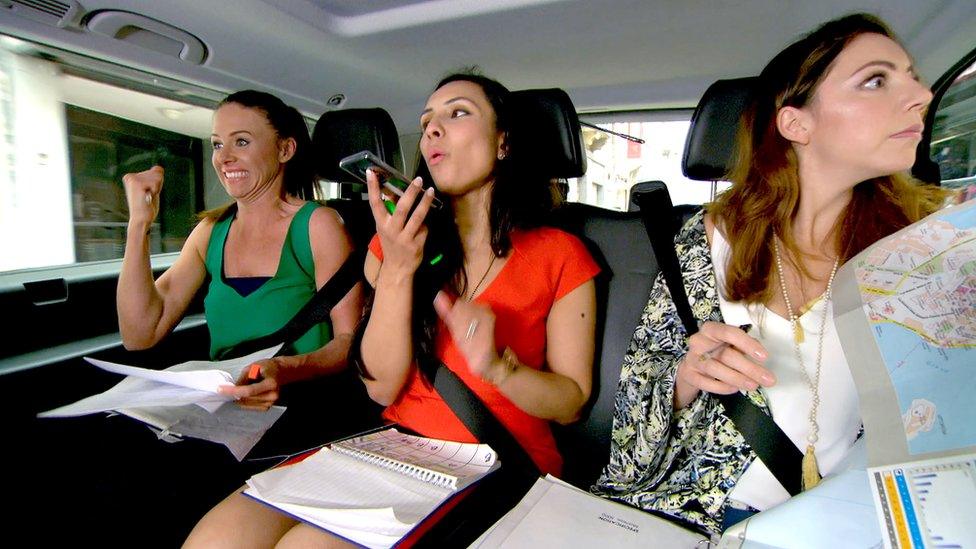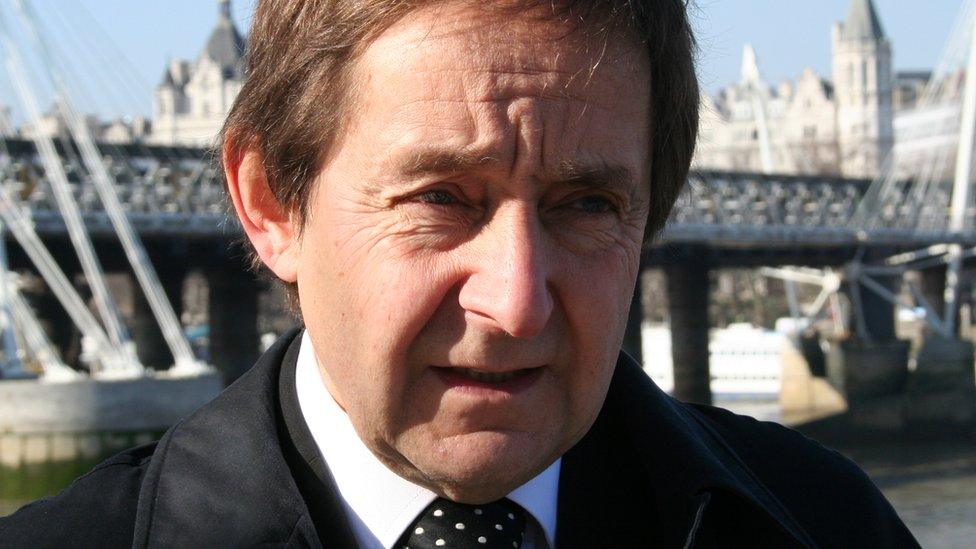'I won!' Honours system loses its sense of modesty
- Published

Nominations for honours have to declare whether they have paid for help with the application
It's a long way until the New Year honours are meant to be announced, but press releases have already arrived from recipients announcing they've been awarded an OBE.
Their message comes with a glowing tribute to themselves, along with links promoting their business ventures.
This is a very long way from the understated tradition of pretending to be surprised when the awards are finally revealed.
Another sign of changed attitudes is that application forms for awards now ask people to declare if they have used a fee-charging agency.
These are companies that help with nominations for an honour, with price menus between £2,500 and £40,000 for applications for awards such as a CBE (Commander of the British Empire), MBE (Member of the British Empire) or OBE (Officer of the British Empire).
In the case of the press release, the name of the recipient is embargoed - but it is a significant stretch from the longstanding practice of modest secrecy ahead of the announcement, even though award winners will have known for weeks.

As well as OBE and MBEs, honours agencies offer help with securing "life changing" peerages
The Cabinet Office says recipients should "respect the confidentiality of the honours system by not discussing the award until the official publication".
But this is not easily enforced, as it is on trust rather than by regulation that more than 2,000 recipients a year keep the honours to themselves.
News organisations traditionally receive the list of names a day or so before it is published, allowing for discreet inquiries, under a tight embargo.
But already this year, there have been news reports naming other people expected to receive awards.
In the case of those jumping the gun with a celebratory press release, royal commentator Prof Pauline Maclaran detects a cultural change in the readiness to show off.
She likens it to entrepreneurial television programme The Apprentice, where achievements are "personal branding".
But the difficulty, she says, is that this celebrity-style approach is not really in keeping with the spirit of public service.
"The quest for self-promotion contradicts the idea of the honours," Prof Maclaran says.

Do programmes such as BBC One's The Apprentice encourage a culture of self-promotion?
Such an appetite for public recognition is also a business opportunity.
The awards agency, Awards Intelligence, claims it has a 65% success rate for people using its services for help with honours applications.
Mark Llewellyn Slade, the firm's founder, says that's because he dissuades people who don't stand much chance - and also because they've put in more than 1,500 applications and "learned what works and doesn't work".
The company uses professional writers for nomination forms and he says the service is a way of "demystifying" the honours system.
There are different degrees of time and support for applications, with packages such as the "Windsor", "Balmoral" and "Sandringham", on a sliding scale between £4,900 and £40,000.
Mr Llewellyn-Slade likens it to some families being able to boost their children's exam chances by paying for a personal tutor.
"With money comes choices," he says, and receiving an award is "one of the most powerful pieces of PR".
Perhaps more surprisingly, his menu of awards includes help getting a seat in the House of Lords, at the relative bargain starting price of £12,900.
Mr Lllewellyn Slade claims "several" successful applications for peerages have come via his company, although none are named.
'Opens doors'
Mike McKie, of Bayleaf, a firm of "specialists in royal honours", says his service provides "administration and not a short cut" for awards, aimed at busy people with too little time for the honours process.
In terms of how clients might benefit, Bayleaf's website promises: "Such recognition opens doors."

Sir Anthony Seldon says most accept awards in the right spirit although not telling people was "agonising"
The Cabinet Office makes clear nominations get no advantage from paid assistance. The applications, which anyone can make on someone else's behalf, are considered by a series of specialist honours committees.
"The nomination form explicitly states that the Cabinet Office does not endorse the use of fee-charging drafting services and asks people to declare if they have used them," a spokesman says.
The message is there is just as good a chance if a friend fills in the form for nothing.
Sir Anthony Seldon says his knighthood, in 2014, was one of the biggest thrills of his life but it was "agonising not telling people" ahead of the announcement.
The "vast majority" of those accepting awards do so in the right spirit of gratitude, the historian and biographer says.
"An honour is the moment not to boost egos, but the opposite," he says.
"It is not only recognition of past endeavours but can also be the opportunity for the recipients to double down on their efforts to serve others selflessly, without personal or financial aggrandisement."